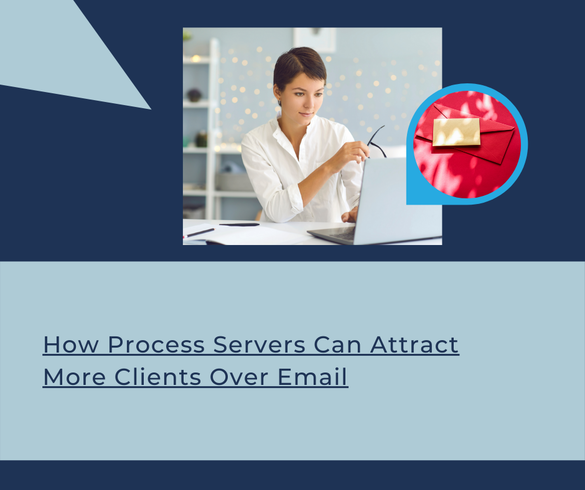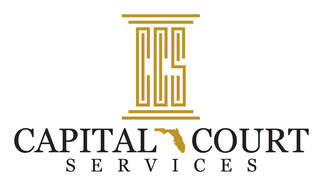|
Author: Brani Andreev, MBA, is an expert in nationwide management of process service, consultant, speaker, and developer of the breakthrough Management Model of the 4Ps™ that ensures the consistent quality of process service.
The judicial system did not escape the debilitating effects of the current challenging times. Courts shut down or moved to a virtual environment. Remote work became the norm and members of the legal community are fighting to find a stable footing. During these difficult times it has become crucial to rely on legal technology for everything from electronic filings to digital depositions to virtual hearings. Legal experts are providing insights and predictions as to the future of the legal industry and the direction in which it will continue to share. Few people in the legal industry have the experience and knowledge to weigh in the way Karl Harris, CEO of Lex Machina, can. In a recent interview with John Goodnow from Above the Law, Harris shared his insights on the changes to come and the factors that will allow law firms to succeed in the new legal world. Law Firms on the Cusp of a Fundamental Revolution
According to Karl Harris the legal industry will experience changes in the way they deliver their services. "The stakeholder that’s going to be driving the change is clients", Harris shared. He sees part of this revolution to involve a continuing shift away from the traditional billable hour model. “The billable hour, it’s just got to go away, right? Nobody likes it. Clients don’t like it, the associate that’s got the little timer on their screen doesn’t like it, nobody likes it.” Harris further explains that under the billable hour, “there can often be an adversarial relationship with a client and its outside counsel, as you’re kind of wondering, ‘Are we really in alignment? Are our incentives aligned? Are they doing the right thing?’ ”
To Harris, law firms that succeed and will continue to be change agents for the legal industry are the ones that lead their firms to become active partners in promoting their clients’ business goals. From a necessary evil and a line on an expense sheet, clients now take on a central role in the legal industry process. Harris believes that by sharing risk and aligning a law firm's success with that of its customer, firms will become more efficient with their own resources. Being efficient and moving toward fixed-fee work does not necessarily mean that a law firm's revenue will go down. “It’s okay if a fixed-fee arrangement actually results in a higher fee than what a billable arrangement would, because what the client is paying for is reduced risk, and people are willing to pay to reduce risk", Harris adds. Agile Enough to Meet Clients' Evolving Needs
According to Harris, the question is which law firms are going to be able to meet that change. In conversations with law firm leaders and partners, the number one question on their minds is if the firm is agile enough to meet the changing and evolving needs of their clients. Unfortunately, the answer to this question among paralegals, attorneys and legal assistants is negative. Law firms do not feel generally agile enough to meet the new and fast changing needs of their clients.
Harris said he sees this as a deeply untenable state of affairs, especially for law firms that employ a traditional fiscal system. “There’s a lot of risk, year to year, in the law firm model. At the end of the year, you pay out all the profits to partners and you start with zero. You finance the firm for three quarters of the year with loans from a bank. You’re not even in the black until the last few months of the year, and then you make all your profits. Like, if you make one mistake, it can bring down an entire firm.” One of the most important questions a law firm can be asking itself, according to Harris, is about its leadership team. “What’s the profile of the ultimate decision-makers at these large law firms? Are they nimble, technology-savvy? Where are they at in generational turnover, and what’s their willingness to take risk and make changes?” In the months and years ahead we see competition growing stronger and more sharp-elbowed. Law firms that are not ready to pivot quickly as circumstances merit could find themselves pushed right out of business.
Leveling The Field
Based on fast technological advances in the legal industry, small and midsized law firms are quickly embracing new tools and applications. Technology is becoming a great equalizer in the legal field, one that allows small and midsized firms to punch above their level. These changes lead to an increase in competition, that challenges the status quo for large, highly leveraged law firms. As more attorneys have the tools to service their clients, the level of competition and customer service goes up, and the legal industry begins catching up on the ground it has lost to the broader business world. Harris gave the example of trying to decide whether to file a motion for summary judgment in a major case. The traditional method of making that decision might be to email blast the firm for insights on the judge or opposing counsel, and then trying to use whatever anecdotes arrive to supplement the attorney’s legal reasoning and judgment. With Lex Machina, however, an attorney can click a few buttons to pull statistics on:
“What AI is doing right now is massive pattern matching at scale", according to Harris, "That’s what machine learning, natural language processing does: it makes sense of patterns that may be too hard for the human to hold all the data in their mind … . It’s great at processing lots of data at scale, but it’s just matching patterns. There is no intelligence that’s replacing your judgment, so don’t be afraid of AI. Embrace it. Leverage it to your advantage.” Software can quickly pull the 10 most recent successful and unsuccessful MSJs a given judge has ruled on, or calculate what percentage of cases of a certain type succeed or fail in a given jury pool. And software does it faster, and for pennies on the dollar compared to what it would cost an associate or partner to generate the same data. That data helps attorneys make better litigation decisions and helps them communicate more effectively to their clients on why a given recommendation is the right one.
Winners And Losers among Law Firms
“Law firms are going to need to change, and there will be winners and losers,” Harris noted. When asked about the one factor that, above all, will determine which firms succeed and which do not, Harris answers, “Law firm leaders need to make sure they’ve got that customer-centric product management approach. At the end of the day, the firm is your product. Be listening to your clients. Watch what they’re doing. Be aware of the data. Look how they’re evaluating your performance, and don’t fight that. Embrace it, because you’ve got to be in line with your customers.” Similar to factors that influence other type of businesses, the success or failure among law firms will always come down to how well we serve our customers. We live in a time where there are plenty of technological and innovative companies and leaders who give law firms the tools, know-how and actionable tools that would help them do what the legal industry already does but better. Tools like Lex Machina or PROServer List are just a couple of the many great solutions available to law firms, both large and small, to embrace the changing needs of their clients and truly get on the path of becoming winners. Do Not Be a Loser! Get the Right Solution and Become a Winner!
Author: Brani Andreev, MBA, is an expert in nationwide management of process service, consultant, speaker, and developer of the breakthrough Management Model of the 4Ps™ that ensures the consistent quality of process service.
One of the top questions process servers ask is how to get new clients and grow their process service business. It is also one of the major challenges both new and experienced process servers face.
As a business, process service is a low-margin business, where service fees are usually set very close to the price or expense necessary to complete the actual process service. In order to stay profitable and be successful in the long run, process service businesses must sell a greater number of service of process, i.e. deliver more legal documents. To achieve that great number of services, process servers must attract a great number of clients with single or small volume of services or a smaller number of clients with a high volume of legal documents to be served.
Attracting and retaining clients is a constant effort for process servers in the United States. In addition to fulfilling their main duties to deliver legal documents, to locate defendants, to complete and file affidavits on time, to manage the administrative and financial side of their businesses, process servers must exercise regular effort to attract new clients. In today's world of technological advances, many process servers turn to email in order to market their services to potential paralegals, attorneys and law firms. Understanding their clients and being able to offer them the kind of process service they seek is key to whether a client actually responds and engages back when a process server initiates contact via email. Being persuasive over email is very important to whether a process server actually lands enough clients in order to boost the profitability of his/her process service business.
In general, most people have mixed feelings about email. On one hand, email allows us to instantly communicate with people much more efficiently. On the other, email can be incredibly overwhelming. One recent study, for example, found that the average U.S. worker spends nearly six hours each day checking their email!
The fact that email is a text-based form of communication is both its biggest asset and its greatest drawback. Unlike having a face-to-face conversation with an in-person human being, email is a blank slate. Though we can get our words across, it is harder to convey our tone of voice and the nonverbal cues that are a critical component of constructive communication. This makes email a very efficient communications tool for process servers, but also one that leaves a minefield of potential miscommunications and lost opportunities.
In business, most emails are a form of negotiation. When process servers send emails to potential clients, they are asking these clients to read their message and respond in a certain way or take a certain action within a specific time frame. The result process servers are hoping to achieve is to convince these potential clients to try their services and ultimately become their go-to process server. To help you get better results when using email as a tool to attract new clients for your process service business, here are six tips that can help you be more persuasive:
1. Know the Best Ways to Use Email When it comes to attracting clients, your goal should always be to get them to speak to you in person or, in the COVID-19 era, at least over the phone or on Zoom. That said, process servers can use email to support and amplify verbal communications efforts by:
2. Do You See What They See? Before you hit the reply button, take a moment to think about the person who is going to be reading your message and what you know about them. Is this person a paralegal who is under much pressure from his/her attorneys? Or is it a solo lawyer who hardly has time to take care of his/her clients? What’s happened to them in the past week? What factors might be affecting their mood? Is it impossible for them to be mad about something else while they are reading your email? If you have encountered this person before as a process server, you probably have an idea of their preferred communication style and a rough sense of their daily routine. Use this knowledge to form your communication strategy and try to add some personal relevance to your email in order to connect on a deeper level. If you do not have a history to draw from, use what limited information you have to conduct a Downplay ™ to address the negatives the other side might be harboring. Then use Actionable Empathy™ throughout your message to make sure they know you see things from their perspective. 3. Keep It Short When you are trying to attract new clients for your process service business and you approach them via email for the first time, think of email as playing a virtual game of chess. Would you lay out your next seven moves for your opponent on your first turn? When you do not have a live audience to answer or interject, it is easy to get carried away and forget about the back-and-forth nature of communication required to build trust-based influence. The paralegal or attorney you are trying to entice to try your process service do not know you, your experience or background. Limit the information you share and incorporate questions, as they invite your potential process service clients to reply back. To keep your cadence and expectations reasonable, limit yourself to two questions per email. If you are sending a 2,200-word email filled with 17 new concepts and eight questions, do not be surprised if the clients you are trying to engage for your process service business never respond. 4. Consider Timing Every form of communication comes with its own invisible clock. Waiting a couple of hours or even days to respond to an email is perfectly reasonable, less so for texting, and ridiculous to even fathom for in-person conversations. These unspoken rules are helpful to keep in mind when you are trying to grow your process service business for a couple of reasons. First, remember that you do not have to respond to an email immediately. If you receive a message that makes your blood boil, resist the urge to respond on impulse. Wait until your emotions settle down and you are once again governed by logic. Second, remember that these social expectations are not guarantees. Everyone has their own timing expectations and set of priorities. To make sure you and your potential clients remain loyal to the same timeline, and interpret words, like urgent and delayed the same way, use Responsive Questions™ that address how and when you are going to connect again. For example, when you are preparing a message for a new process service client, ask them, "What’s the best time to follow up? Is Friday too late? Is the end of the month good after your deadline?" By asking these kinds of questions, you will foster buy-in and increase the chances the other side follows through on their word. 5. Use Email Softeners Here is a little-known trade secret that will ensure your emails are not received in a hostile or aggressive tone. Write your email and make sure you consider all of the tips offered in this article. Then go back and add email softeners like "I’m sorry" and "I’m afraid", wherever they fit. Your process service clients will never read the tone of the email the way you would like them to. Give your email a friendly and welcoming nature by taking the time to add in specific words and punctuation that support this effort. Lacking these crucial elements means your emails will have a cold tenor at best and, far too often, they will even have a harsh tone that will work against you. For positive or even neutral emails, exclamation points are great way to express energy. Sentences that end in a period will likely be received as flat and cold, even when the tone you heard in your head was upbeat.
6. Do Not Underestimate Subject Lines and Sign-Offs
Most people see subject lines and sign-offs as throwaway parts of an email rather than vital pieces of digital real estate. When you are composing messages and hoping to attract more clients for your process service business, think about a subject line as your first impression and your first chance to win your client’s attention. When people open their inbox, they scan subject lines and mentally prioritize their emails before figuring out which messages to click. If you are using email as a mechanism to spark a quick decision or ignite a conversation after a period of silence, no-oriented questions can make effective subject lines. They warrant a response to set the record straight. "Have we missed our opportunity?" "Is it too late to sit down at the table? " If subject lines are first impressions to attract paralegals and attorneys for your process service business, sign-offs are your last opportunity to communicate tone and intent. Well-executed sign-offs can ensure your message carries the intended weight of your email. Instead of using a standard sign-off, label how you would like to be perceived. Simply signing an email with phrases like "Very humbly" and "With all sincerity" may help you drive home your intention and earn you the benefit of the doubt.
Process service seems an easy business to run. Yet similar to any other small business there are many parts that need your attention constantly, and building and maintaining your client base is a very important part of your success. Learning how to properly craft messages to attract new clients and how to organize your email messages is crucial to how your potential clients respond to your messages and whether they accept your invitation to try serving legal documents with your process service business.
Communication Skills Are a Must When Designing Email Messages
Author: The Process Server Center | PROServerCENTER is a legal professional organization whose mission is to set a national standard for the process service industry in the United States.
Highlights:
Ernest Moody has recently joined PROServer LIST as a newly certified PROServer from the state of Florida. He runs Capital Court Services, conveniently located in downtown Tallahassee. Ernest proudly provides prompt process service to all of the state agencies, such as Florida Secretary of State, Chief Financial Officer, Department of Revenue, Attorney General and Governor's Office. In addition, Capital Court Services regularly serves registered agents, including Corporation Service Company, CT Corporation System, Prentice-Hall Corporation System, LexisNexis, NRAI and more. Ernest Moody is certified by Florida's 2nd Judicial Circuit as a process server, FL License No. CC300127. Additionally, he is an accredited FAPPS Process Server (AFPS) and has training and experience in private investigations. Ernest holds a certificate in Legal Investigations from Florida Gulf Coast University and has received the designation of a certified PROServer after successful completion of the required Certification Exam with a score of more than 80%. He is now awaiting pre-screening from client members of PROServer LIST upon which he will be awarded the dual designation of a certified and pre-screened PROServer. "I have been a full-time professional process server for over 10 years and I take the profession seriously. It is surprising how many people become process servers in order to make "side money" or because they only want to work a few hours a week. They are unable to meet the needs of many clients, and tend to reflect poorly on the profession. Litigation support is what I do. I take pride in my work and the career that I have built", shares Ernest about his experience and what differentiates him from other process servers.
Many of the clients who hire Ernest for their process service needs, quickly realize how seriously he takes their business. At Capital Court Services "I strive for transparency and clear communication with every client regardless of the size of their firm," further shares Ernest. The company is fully equipped to handle a variety of legal cases with different requirements for deadlines and methods of service, including small claims pleadings, family law, witness subpoenas and tenant eviction complaints.
Ernest has many stories about the many services he has successfully completed for his clients. When prompted to share a story that has stuck with him, Ernest says "I have served thousands of papers for the Florida Department of Children and Families, and those cases are often tragic. My early experience serving negligent or abusive parents made a great impression on me, and gave me a much better understanding of the important role that process servers play for the legal system and society. On a lighter note, I once located and served a man in the middle of a national forest. He was temporarily staying in a tent to hide from his divorce papers."
Next time you need service of process, retrieval of public records or a skip trace to locate a difficult defendant, Ernest from Capital Court Services can help you! Learn more by visiting their website at Capital Court Services.
If You Need Process Service Done Right, Do Not Settle for a Process Server |
|
|
PROServerLIST helps clients hire the Best Process Servers - Pre-Screened and Certified |
|
THE PROCESS SERVER CENTER | PROServerCENTER |
✆ 917-409-7046
|
FOLLOW US
|
|
|
|
|
Copyright © 2017 - 2020 The PROCESS SERVER CENTER | All Rights Reserved





 RSS Feed
RSS Feed
